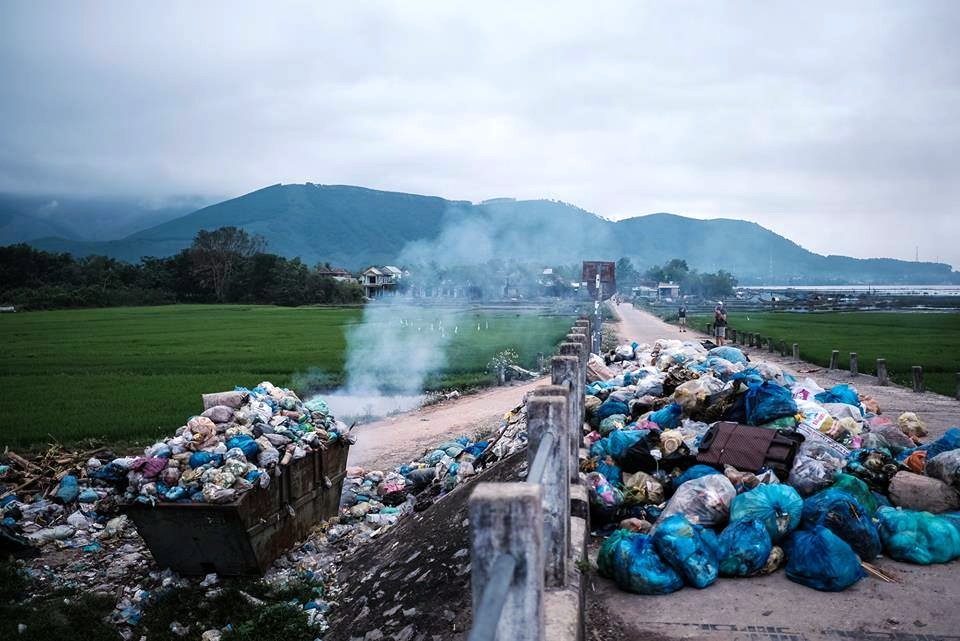Since the first caveman threw away a banana peel and the caveman behind him complained, mankind has been grappling with litterbugs.
After cavemen came cities, with the first record of garbage truck-style rubbish removal mentioned in the Egyptian city of Heracleopolis, 2,300 years ago. The ancient Greeks made a law that all non-renewable waste had to be dumped at least a mile outside the city of Athens.
The good people of Pompeii piled their trash next to the tombs of the dead, seeing no difference between the two – funny how people looked at things in the past.
Health-wise, humanity twigged that it might be a good idea to get rid of the rubbish for the sake of the living. Yet, we’re still struggling with unpleasant and unhygienic littering habits in 2017.
As the Vietnamese winter fades and we’re out and about more often, littering becomes more noticeable and each year around this time, the comments start to flow on social forums about ‘litterbugs’ and their selfish, inconsiderate actions.
So why do the Vietnamese still litter so much? How can the Vietnamese be so patriotic about their land while somehow not caring about the environment around them?
I’m not talking about the occasional bag of chicken bones tossed on the street, I mean the piles of trash that I see every day driving along the coastal road from Hoi An to Da Nang and the use of vacant land as the nearest rubbish bin.
They’re told in their schools. They study the problems of pollution. The government posts thousands of signs nationwide about littering. It’s discussed on TV, social forums and in the newspapers. So why does it continue?
Now I should say that people in most nations also dump rubbish or show signs of selfishness in cleaning up their mess. Sydney parks and streets can look like a slum after New Year’s fireworks celebrations. Shame, Sydney, shame.
For Vietnam, littering comes with serious economic effects, reducing usable water resources, damaging agricultural production and harming people’s health via air-borne pollution from rubbish dump burning.
In the major towns and cities, people are generally dutiful in keeping their local spaces clean enough, although sometimes they have to be not so gently reminded by the local authorities.
However, I worry more about the tourism impact which is largely unrecognized and poorly understood.
Beach and river pollution puts people off travel as so many other scenic and pristine tourist destinations are available these days. It also harms the national reputation as foreigners wonder about the local’s mentality and begin spreading the word on the Internet.
Having said that, the amount of rubbish left by tourists themselves is a huge problem for island tourism as it becomes harder to dispose of the waste and will become a growing concern on Phu Quoc Island and Con Dao too.
In the West, it took decades of public education in the media as well as in schools to install a strong sense of public responsibility and establish habits of disposing of rubbish in a sensible way. In nations like Japan, dumping trash anywhere is unthinkable as Japanese society follows the creed of everyone obeying social norms for the good of everyone – including no rubbish anywhere.
In Tokyo, I went to a cherry blossom festival with thousands of locals picnicking in the parks. At the end of the festival, everyone carefully removed all their rubbish leaving the parks almost totally clean. Almost no government cleaners were involved.
As a teacher, I know all too well that it takes time, repetition and a change in attitude before effective change takes place. It’s taken decades in the West to transform people’s habits and even then tougher laws and stricter policing have been required.
As with the traffic, spitting in the streets, public urination and dozens of other things we’d wish people wouldn’t do, it will take decades to develop the kind of personal civic responsibility that people, both personally and collectively, need to ‘do the right thing.’
First we need locals to ‘get the idea’ of not dumping stuff anywhere and making more of an effort to dispose of their trash in a thoughtful way. This, to me, applies more to the countryside folks and the mostly poor, uneducated population. And that’s where parents come into the picture.
It’s up to the first generation, not just to teach the next generation but also to set the example. In Vietnam, a lot is done by observing what others do. If one person doesn’t care – then why should I? If one group does something bad repeatedly then it becomes the norm as the problem seems too widespread to be changed.
So perhaps in the near future what we all see is only the beauty of Vietnam and not the ugliness of people’s bad habits. We’re not cavemen anymore!
Đừng vứt rác bừa bãi! (Don't throw trash randomly!)




















































